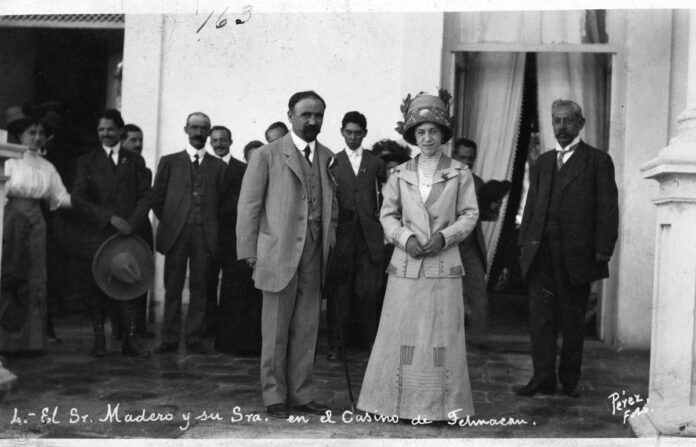The Mexican government sought to reduce the pension former president Francisco Madero’s wife, Sara Pérez Romero received.
In 1917, Sara Pérez Romero was granted a pension as the widowed spouse of Francisco I. Madero. As context, according to researcher Suarez Farias, at her death in 1952, Mrs. Sara Perez Romero had a pension of 30 pesos a day.
However, in 1939, the Law of Pensions for Civilian or Heroic Merits was issued, which set a limit of 2 to 12 pesos per day for the pensions of Mexicans who heroically served Mexico and their families.
Given this, Mrs. Sara Pérez, widow of Madero, exercised her rights and filed an amparo lawsuit against the Law and its application by the Secretary of the Treasury and the Treasurer of the Nation to reduce her pension.
The First District Judge in the Administrative Matter of the Federal District granted the amparo. Although the authorities challenged the Judge’s decision before the Supreme Court, they withdrew their appeal.
Therefore, in 1940 the Supreme Court declared as final the sentence of the Federal Judge that granted the amparo to Mrs Sara Perez, widow of Madero so that her pension would not be reduced.
One more example of the historical role of the amparo to protect rights against arbitrary acts of the authorities.
Find out more about legal history.
Watch this video (in Spanish)
References
Lucio Cabrera Acevedo, La Suprema Corte de Justica durante el Gobierno del General Lázaro Cadenas (1935-1940) Parte I (Primera Edición, Suprema Corte de Justicia de la Nación 1999)
https://sistemabibliotecario.scjn.gob.mx/sisbib/CST/26881/26881.pdf
Ley de Pensiones por Méritos Civiles o Heroicos (Publicada en el Diario Oficial el 19 de Abril de 1939, Tomo CXIII, Número 43) México.
https://dof.gob.mx/nota_to_pdf.php?fecha=19/04/1939&edicion=MAT
Asunto: Sara Pérez viuda de Madero, Amparo en Revisión Núm. 1663/40, Segunda Sección Auxiliar, proyecto del M. Rodolfo Asiain.
Suárez Farías, F., (1992). Una mujer en la historia: Doña Sara Pérez de Madero. Política y Cultura, (1), 271-275.






